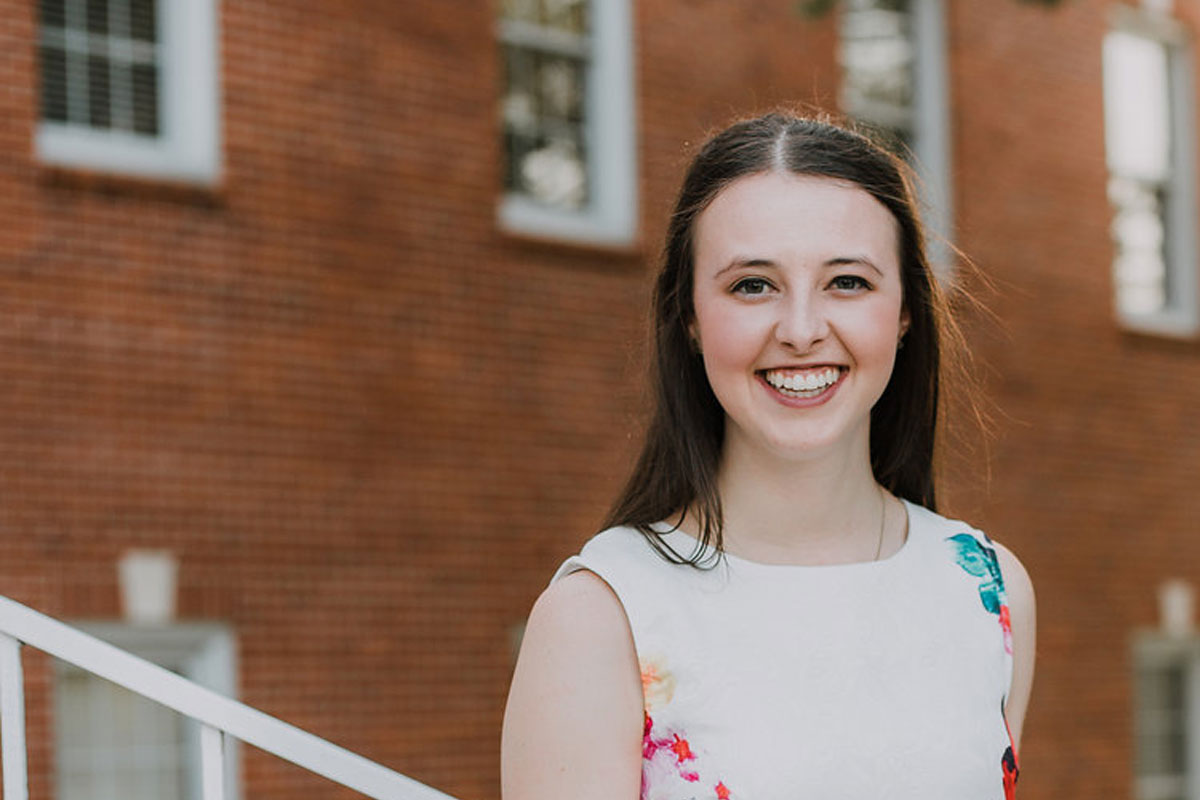Mary McMahon received a personal educational experience that gave her the chance to explore her interests in both the undergraduate and graduate programs in speech language pathology.
Mary chose the University of Louisiana at Lafayette for college because it was “the perfect fit,” she said.
“I thought it was big enough for me to spread my wings but not so big to where I became just a number in any of my classes,” she said. “I was able to get to know my professors and was easily able to schedule meetings with them when I was struggling with a topic in class.”
Mary majored in speech pathology and audiology, a decision she made largely because of her aunt’s career as an audiologist. At UL Lafayette, Mary was able to learn about the range of fields and disciplines within speech-language pathology, leading her to discover her passion.
“Although many people associate a speech-language pathologist with helping children who struggle with language or speech disorders, I’m passionate about working with adults who have experienced strokes or traumatic brain injuries,” she said.
“The opportunity to walk alongside a patient and their family on their road to recovery, helping them regain their ability to communicate, is an experience unlike any other.”
She continued that exploration in speech-language pathology in the master’s program here at UL Lafayette.
“The field of speech-language pathology involves so many clinical areas, and all of my professors and clinical supervisors have pushed me to delve into the areas that interest me most,” she said.
“UL Lafayette has one of the few master’s degree programs for speech-language pathology where electives are offered,” she said. “This allowed me to learn more about how speech-language pathologists can serve the adult and geriatric populations.”
Mary also got experience working with clients in UL Lafayette’s on-campus Speech, Language, and Hearing Center through her graduate classes.
Classes in motor speech disorders and neurogenic voice disorders gave her the opportunity to dive deeper into the research and use the information to improve treatment plans for her clients, particularly for people with Parkinson’s Disease.
“Professors went above and beyond teaching us the theory behind many of the treatments and interventions we utilize in UL Lafayette’s Speech, Language, and Hearing Center, allowing us to be able to make our own educated decisions when choosing evidence-based practice in our future careers,” she said.
Critically reading research and using it to improve clients’ treatment is the most valuable skill Mary learned in her speech-language pathology program at UL Lafayette.
“The field of medical speech-language pathology is constantly evolving, meaning that it’s impossible for me to learn everything I need to know for the rest of my career in graduate school,” she said.
“I’m thankful that my professors and clinical supervisors have taught me how to apply clinical research into my therapy sessions and to read research articles with a critical eye, allowing me to continually implement evidence-based practice in my treatment,” she said.
